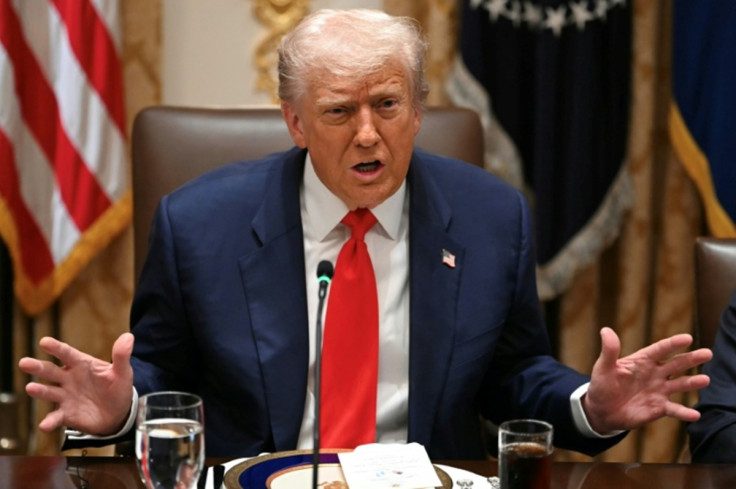Who Has to Pay Trump's $100,000 H-1B Visa Fee? New Rule Won't Apply to Most International Students
Clarification confirms the fee applies only to new H-1B petitions from outside the US, not those already residing or studying in the country.

A new immigration fee announced by US President Donald Trump has sparked concern among international applicants and employers. The administration confirmed that certain H-1B visa petitions will now incur a $100,000 surcharge. However, recent guidance clarifies that most international students already in the United States will not be required to pay this fee, easing fears among graduates hoping to stay and work in America.
The H-1B visa is a popular route for skilled foreign workers, especially in technology, finance, and research sectors. The Trump administration introduced the surcharge as part of its broader effort to discourage what it describes as employers replacing American workers with cheaper foreign labour.
According to the updated guidance, the $100,000 fee will only apply to new H-1B petitions filed from outside the US. This means that individuals already in the country — such as those on F-1 student visas seeking to switch to H-1B status — will not face the additional charge. The fee also does not apply to existing H-1B visa holders renewing or transferring their visas within the US, nor to individuals applying from within the country under lawful status, such as graduates on Optional Practical Training (OPT).
This clarification significantly narrows the scope of the fee, alleviating initial fears, particularly among universities and international students in the UK and elsewhere. Had the surcharge been applied universally, many students might have faced substantial financial barriers to employment in the US. Now, most already-resident students can continue their plans without the extra cost.
However, those applying to enter the US directly from abroad, including UK graduates seeking employment under H-1B sponsorship, may still be subject to the surcharge if their application is considered a 'new application from overseas.'
The policy has faced strong opposition from industry groups. The US Chamber of Commerce has filed legal challenges, arguing that the steep increase in fees could deter companies from recruiting essential skilled workers, potentially hindering economic growth.
Some analysts suggest the surcharge may serve more as a political deterrent than a practical revenue measure. Critics also warn it could undermine the US's global competitiveness, especially as rival countries introduce incentives to attract international talent.
While the measure aligns with Trump's longstanding focus on prioritising domestic employment, critics argue it risks stifling innovation across sectors like technology, artificial intelligence, and healthcare — areas already facing domestic labour shortages.
For UK graduates considering international careers, the new fee adds complexity to planning employment abroad.
Although headlines about a $100,000 visa fee have caused alarm, the clarification indicates most international students already in the US will not be affected. Those applying from overseas, however, may face significant costs, and legal challenges could delay or alter the policy before it is implemented.
For now, the new surcharge's scope is narrowly targeted but signals a strategic shift in the US's approach to attracting global talent.
© Copyright IBTimes 2025. All rights reserved.





















